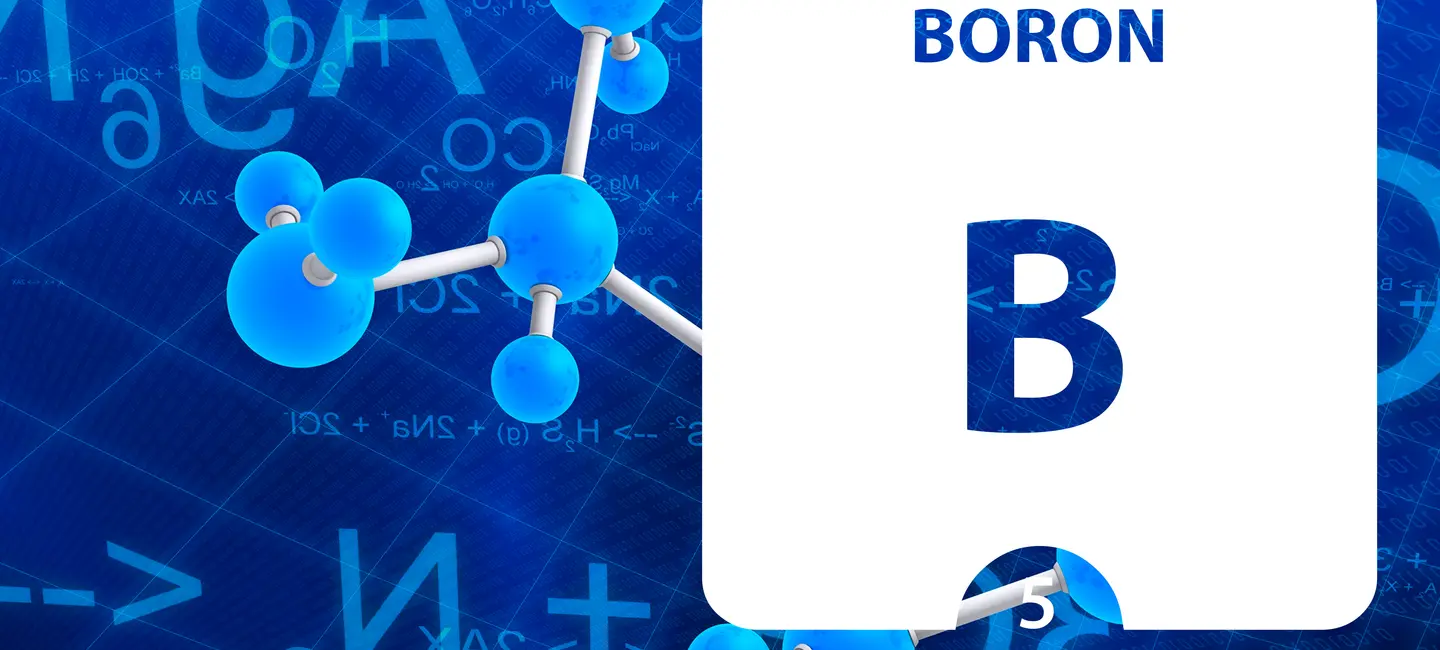
Boron is an element. Boron has been consumed for menstrual cramps and boric acid has been used vaginally for yeast infections, but evidence is limited.
Boron seems to affect the way the body handles other minerals such as calcium, magnesium, and phosphorus. It also seems to increase estrogen levels post-menopause. Boric acid, a common form of boron, can kill yeast that cause vaginal infections. Boron may have antioxidant effects.
People commonly use boron for boron deficiency and vaginal yeast infections. It is also used for athletic performance, menstrual cramps, osteoarthritis, osteoporosis, and many other conditions, but there is no good scientific evidence to support many of these uses.
Is It Effective?
NatMed Pro rates effectiveness based on scientific evidence according to the following scale: Effective, Likely Effective, Possibly Effective, Possibly Ineffective, Likely Ineffective, Ineffective, and Insufficient Evidence to Rate.
- Boron deficiency. Taking boron by mouth treats and prevents boron deficiency.
- Skin damage caused by radiation therapy (radiation dermatitis). Applying boron gel to the skin might help prevent skin damage caused by radiation therapy.
- Vaginal yeast infections. Applying boric acid inside the vagina can help treat yeast infections (candidiasis), including infections that do not seem to get better with other medications and treatments.
- Athletic performance. Taking boron by mouth doesn't seem to improve body mass, muscle mass, or testosterone levels in male bodybuilders.
There is interest in using boron for a number of other purposes, but there isn't enough reliable information to say whether it might be helpful.
Is it Safe?
When taken by mouth: Boron is likely safe when used in doses that don't exceed 20 mg daily. Boron is possibly unsafe when taken in higher doses. Doses over 20 mg daily might cause male fertility problems. Large doses can also cause poisoning. Signs of poisoning include irritability, tremors, weakness, headaches, diarrhea, vomiting, and other symptoms.
When applied to the skin: Sodium pentaborate pentahydrate gel, which contains boron, is likely safe when applied to the skin for up to 5 weeks.
When applied into the vagina: Boric acid, a common form of boron, is likely safe when used for up to 6 months. It can cause vaginal burning.
Special Precautions & Warnings:
Pregnancy and breast-feeding: Boron is likely safe when taken by mouth during pregnancy or breast-feeding. For those 19-50 years old, do not take more than 20 mg daily; for those 14-18 years old, do not take more than 17 mg daily. Taking boron by mouth in higher doses is possibly unsafe and has been linked to lower birth weights and birth defects. Applying boric acid into the vagina during the first 4 months of pregnancy has also been linked to birth defects.
Children: Boron is likely safe when used appropriately. The amount that is safe depends on the child's age. Boron is possibly unsafe when taken by mouth in higher doses. Large quantities of boron can cause poisoning. Boric acid powder, a common form of boron, is possibly unsafe when applied in large amounts to prevent diaper rash.
Hormone-sensitive condition such as breast cancer, uterine cancer, ovarian cancer, endometriosis, or uterine fibroids: Boron might act like estrogen. If you have any condition that might be made worse by estrogen, avoid supplemental boron or high amounts of boron from foods.
Kidney disease: Do not take boron supplements if you have kidney problems. The kidneys have to work hard to flush out boron.
It is not known if Boron interacts with any medicines. Before taking Boron, talk with your healthcare professional if you take any medications.
There are no known interactions with foods.
Boron is naturally found in water and foods such as nuts and vegetables. There aren't any specific dietary recommendations for boron, but it's estimated that most adults consume about 1-1.5 mg daily.
In supplements, adults shouldn't consume more than 20 mg daily. For children, the amount that is safe depends on age. Speak with a healthcare provider to find out what dose might be best for a specific condition.
Acide Borique, Anhydride Borique, Atomic number 5, B (chemical symbol), B (symbole chimique), Borate, Borate de Sodium, Borates, Bore, Bore Chélaté, Boric Acid, Boric Anhydride, Boric Tartrate, Boro, Boro Quelado, Boron Ascorbate, Boron Chelate, Calcium Fructoborate, Chélate de Bore, Chelated Boron, Numéro Atomique 5, Quelato de Boro, Sodium Borate, Sodium Pentaborate Pentahydrate.
Information on this website is for informational use only and is not intended to replace professional medical advice, diagnosis, or treatment. While evidence-based, it is not guaranteed to be error-free and is not intended to meet any particular user’s needs or requirements or to cover all possible uses, safety concerns, interactions, outcomes, or adverse effects. Always check with your doctor or other medical professional before making healthcare decisions (including taking any medication) and do not delay or disregard seeking medical advice or treatment based on any information displayed on this website.
© TRC Healthcare 2024. All rights reserved. Use and/or distribution is permitted only pursuant to a valid license or other permission from TRC Healthcare.
